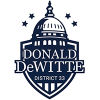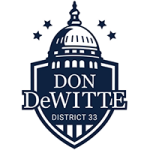A recent Bloomberg News report points to the massive influx of migrants who are heading to Illinois once they enter the United States. The article examined the addresses provided by migrants for immigration court cases. According to the report’s metrics, there was an increase of 821% in the number of migrants listing an Illinois address from just 2021 to 2023.
Governor JB Pritzker has made it a major priority of his administration to provide services for migrants, stating that he wanted to make Illinois the “Most Welcoming State in the Nation” for non-citizens. Illinois is one of just two states providing free healthcare for non-citizens, along with numerous other taxpayer-funded services. When Pritzker took office, spending on non-citizen programs was just a few million dollars per year, but that has ballooned to roughly $1 billion per year over the last two years.
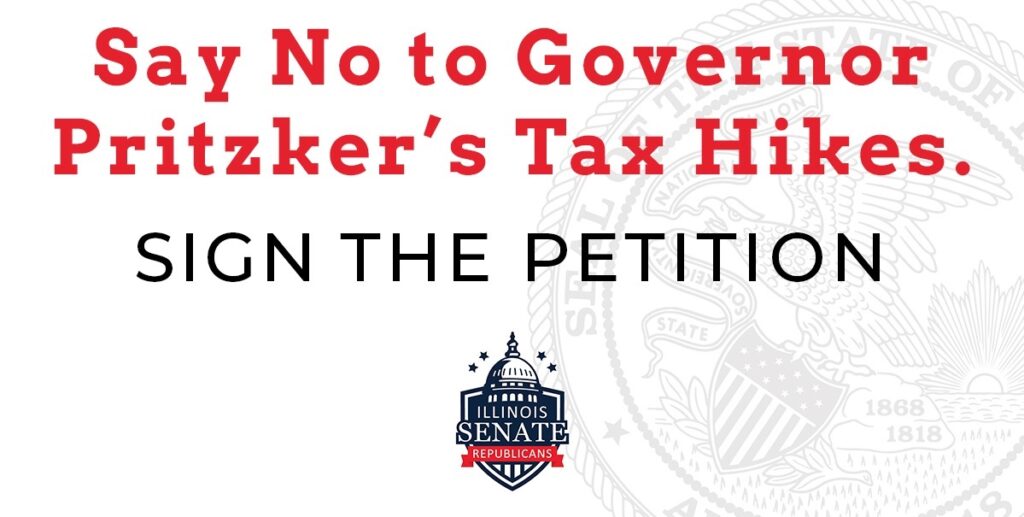
The Governor recently presented his annual budget proposal, including $1 billion in tax increases on families and businesses. It’s no coincidence that the Governor’s tax hike proposals so closely match up with the amount his administration has been spending on migrant services. It’s clear the Governor needs to focus on programs helping Illinois citizens, most importantly on our vulnerable populations like veterans, the disabled, and seniors, instead of using the taxpayers as an ATM to fund his myriad of programs for migrants.
I have created a petition you can sign if you are opposed to the $1 billion in Pritzker tax hikes that would support programs for migrants. Click here to sign the petition.
DeWitte Legislation Lessens Need for Tax Hikes to Fund RTA Services
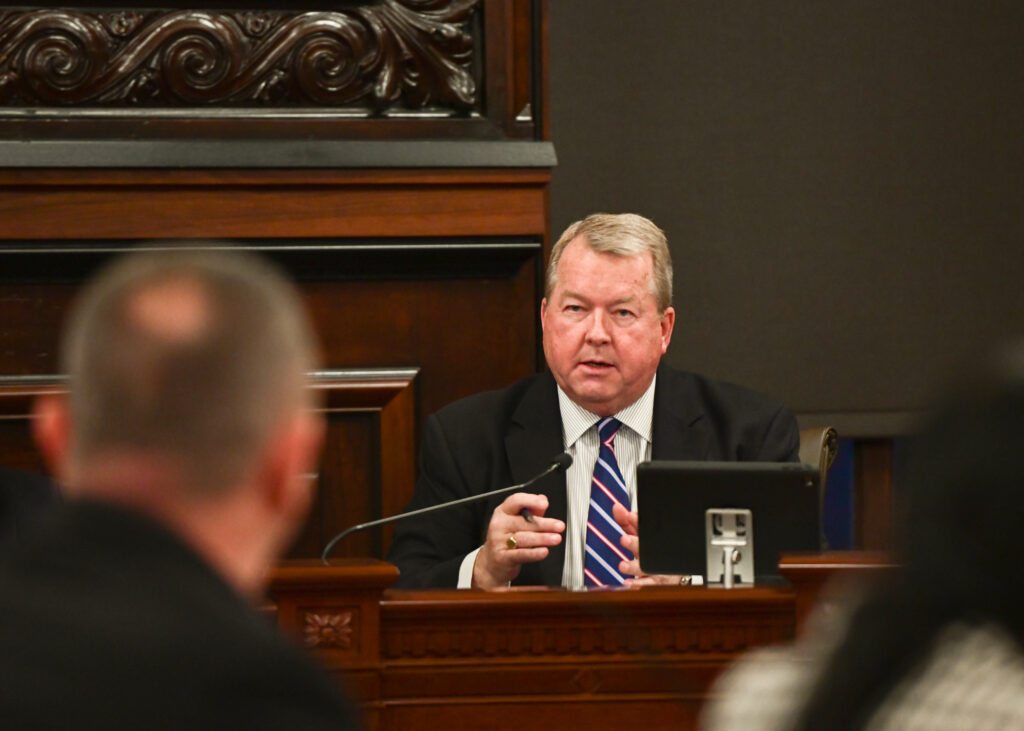
A recent “Plan of Action for Regional Transit” (PART) report that addresses a proposed $730 million budget shortfall by Fiscal Year 2026 has taxpayers on the hook for as much as $1.5 billion in new public revenue for budget management and new improvements. In response to the proposed tax hikes, I have filed legislation that identifies an alternative revenue stream to help support the Regional Transportation Authority (RTA) and lessen the need for more taxes.
The 33rd Senate District includes portions of Kane, McHenry, and DuPage Counties. This is half of the six counties in the RTA service area, so every one of my constituents would be impacted by the revenue suggestions included in the PART report.
Video gaming is currently not allowed in Chicago, and my Senate Bill 3172 would lift that ban, with 1/3 of the state proceeds from video gaming allocated toward RTA needs. If we allow for this form of gaming and channel a portion of the proceeds to the RTA, the impact on taxpayers would be greatly reduced. It has been projected that video gaming in Chicago would bring in about $400 million in annual proceeds, so approximately $135 million per year could be allocated for mass transit improvements.
Of the six major mass transit systems in the nation, the State of Illinois ranks dead last in the percentage of funding the state contributes toward mass transit. The federal government also woefully underfunds mass transit in Illinois. The funding recommendations in the PART Plan include raising passenger fares, increasing parking fees, implementing road usage charges and “congested area taxes,” increasing toll costs, adding new toll systems to currently un-tolled expressways, raising vehicle registration fees, raising the motor fuel tax, and broadening the sales tax base to include professional services like dry cleaning, barber shops and hair and nail salons, increasing payroll taxes, and adopting clean energy policies that are financially punitive to those who drive gas-powered vehicles.
DeWitte Joins Senate Colleague in Recognizing ACEC Award Winner
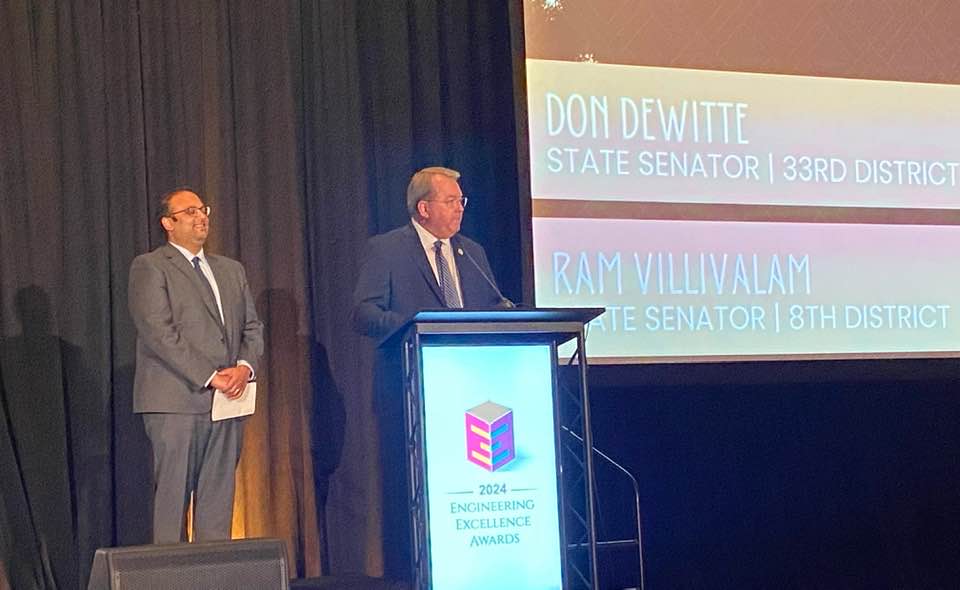
Last week it was my pleasure to join my Senate colleague and transportation partner Chairman Ram Villivalam at the American Council of Engineering Companies (ACEC) Excellence Awards dinner in Rosemont, to present the Engineering Excellence of the Year Award to the four firms who designed the infamous “mile long bridge” on I-294.
The Engineering Works Award is voted for by the public through online voting. The goal is to have the public select the best infrastructure project in Illinois.
This year the Engineering Works Awards was voted on by over 2,000 individuals with voting closing during the Engineering Excellence Award Gala on February 22, 2024.
Legislative Audit Commission Criticizes DCEO’s Handling of COVID-19 Program
On Feb. 20, the Legislative Audit Commission held a hearing at the Illinois State Capitol to review the state audit findings of the Business Interruption Grant Program, which allocated $585 million to help small businesses negatively impacted by the COVID-19 pandemic.
The Office of the Auditor General’s audit revealed that $11 million was paid out to ineligible participants under the state program as a result of the Department of Commerce and Economic Opportunity’s (DCEO) decision to use their own eligibility category for the small-business portion of the program instead of what the General Assembly passed.
DECO chose to use the pre-existing Grant Accountability and Transparency Act to justify hiring an outside vendor to delegate the program’s funds, resulting in higher costs.
During the Legislative Audit Commission hearing, Senate Republicans questioned the decision to hire outside community partners to distribute the funds and were particularly critical of the disclosure that one of those outside partners had made a $5,000 campaign donation to former DCEO Assistant Director Michael Negron, who served as one of the lead main grant administrators.
